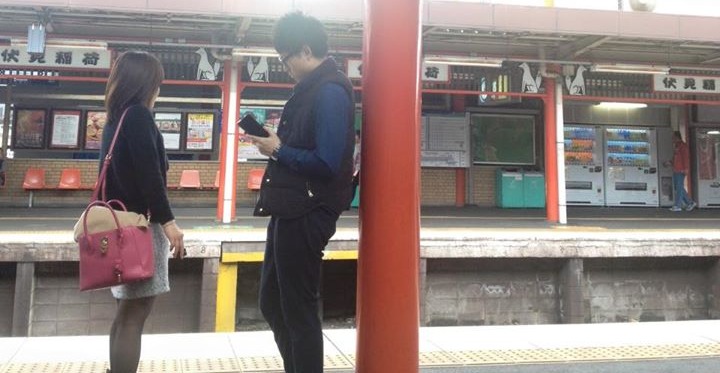A Study in Isolation

This room is filled with many people, but you can’t speak with any of them. They talk to one another, muttering hushed syllables that you don’t understand. They read signs you can’t read, and they watch television programs you can’t decipher. In a country where everyone is connected, you have never felt so alone in your life.
You communicate with people primarily with hand gestures and hope. Some have the patience to tolerate your handful of mispronounced phrases and your apologetic English, but others don’t. It’s hard to know where to eat because you don’t understand the menus and you’ve been warned foreigners aren’t welcome at a lot of local restaurants.
You shop at a convenience store and the person who serves you speaks no English; they talk constantly, reciting the niceties of Japanese, but you don’t understand any of it. You feel guilty because you can’t engage with them, even though you want to. You hope they haven’t asked you any questions. They point at the total on their screen and you pass them some yen. ‘Arigato,’ you say.
Trying to find the hotel room, you stand against a wall with a map in your hands. A woman on a bicycle stops near you and asks in clear English if you need help. You have never been so relieved to hear familiar words. She points you in the right direction.
In the hotel room, you watch some Japanese programs. You leave it on the sport because at least you understand the rules. Later, you find one English-speaking channel. You watch the BBC World News, even when it repeats the same news stories at the next hour, just because you understand what is being said.
At the train station the signs do little to help you. You’re lost again. You ask a shop clerk if he speaks English and he says ‘Yes, little,’ with apologetic eyes. He seems to want to help you and is sorry that he might not be able to. You show him a map, point at a station, tell him you need to buy tickets. ‘Tickets?’ he says. He smiles. It’s a word he recognises. He points down a hallway and gives you the thumbs up.
In the station you see a pair of tourists walking through the ticket gates with large backpacks on. They are speaking to each other in English. Something about a jacket. It’s mundane, but enough to make you feel a part of the world again.
The train stops at stations with large, glowing signs denoting their names. You can’t find them on any of your subway maps.
You realise that there are people who, every day, feel this disconnected from the space you consider to be your home. Who, out of choice or necessity, have come to your country and feel distant from it. You hope that you have done enough for them, to help them like the cyclist or the shop clerk helped you. You hope that, when you finally return home, you can figure out how to do more.
